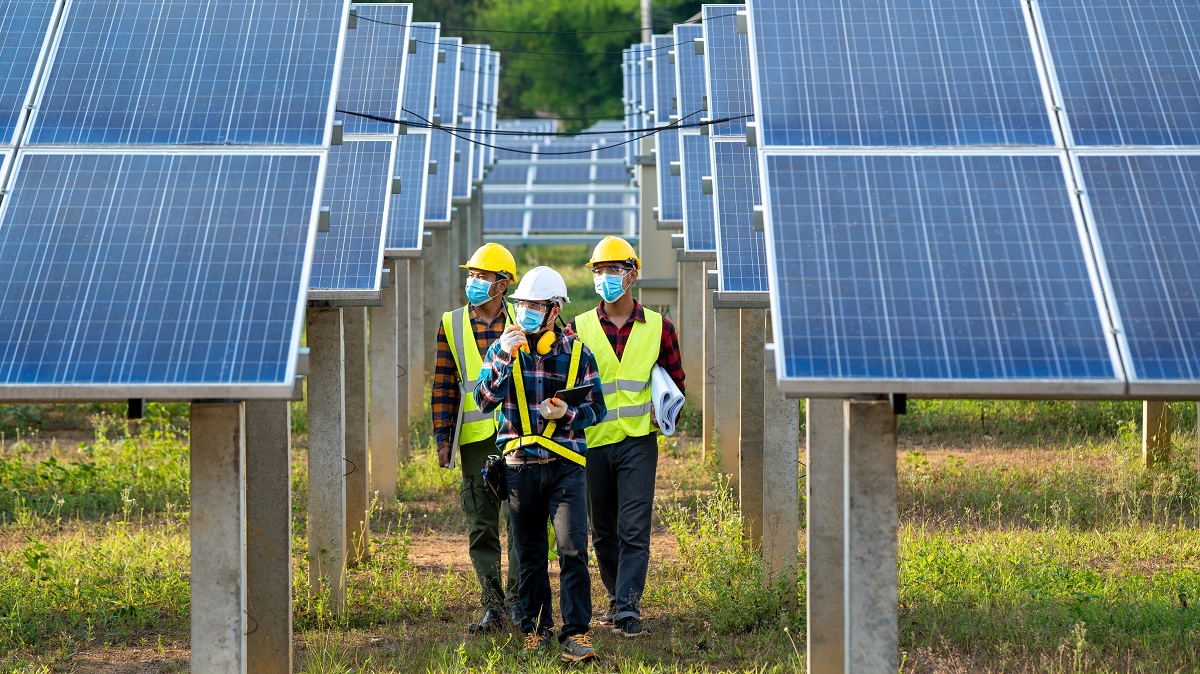In a landmark initiative, the United Nations (UN) commemorates the first International Day of Clean Energy on January 26, 2024. The focus of this inaugural day is to raise awareness, engage global citizens, and encourage leaders to embark on a just, inclusive, and equitable transition towards clean energy solutions.
Aiming for a Sustainable Future
The essence of this day lies in the imperative shift toward renewables and energy efficiency, offering sustainable solutions to combat the climate crisis and ensure environmental cleanliness. This call to action gains significance as 675 million people still lack access to electricity, while 2.3 billion people rely on traditional fuels like wood and dung, contributing significantly to respiratory diseases, especially in low and middle-income countries.
António Guterres, the UN Secretary-General, emphasised the transformative potential of clean energy. “Clean energy is the gift that keeps giving,” stated Guterres. He highlighted its multifaceted benefits, from purifying air and meeting energy demands to ensuring affordable power for billions, with the ambitious goal of universal electricity access by 2030. Guterres urged for an urgent and fair transition from fossil fuels to clean energy to avert climate chaos.
Read also: African Energy Chamber (AEC) of Commerce request Investment in Energy
Global Commitments and Urgent Actions
Acknowledging the recent commitment by countries at COP28 to triple renewable energy capacity by 2030, Secretary-General Guterres stressed the inevitability of phasing out fossil fuels. He called for decisive action by governments, especially the major emitters, to lead the transition. Guterres underscored the need for increased climate finance and the formulation of new national climate plans by 2025 to ensure a just transition to clean power.
Achim Steiner, Administrator of the UN Development Programme and Co-Chair of UN-Energy, highlighted the disparities in access to finance for developing and emerging countries. He called for a radical rethinking of the just energy transition to address these inequities, emphasising the necessity of systemic changes on the ground, including transformations in institutional and governmental structures.
Damilola Ogunbiyi, Special Representative of the UN Secretary-General for Sustainable Energy for All and Co-Chair of UN-Energy, urged governments, businesses, and organisations to leverage Energy Compacts. These compacts, with over 200 registered since 2021, have garnered over $1.3 trillion in voluntary commitments for investment and finance through 2030. Ogunbiyi stressed their significance in registering or reinforcing energy commitments on the global stage.
Immediate Milestones and Global Stocktake
Li Junhua, UN Under-Secretary-General for Economic and Social Affairs and head of the UN-Energy Secretariat, emphasised the upcoming milestones in delivering on energy commitments. A global stocktake in April, convened by the President of the United Nations General Assembly, and the Summit of the Future in September will serve as crucial moments for countries and stakeholders to intensify their actions.
The International Day of Clean Energy
Established by the UN General Assembly, the International Day of Clean Energy aligns with Sustainable Development Goal 7, recognizing clean and affordable energy as essential for achieving SDGs by 2030 and meeting the climate goals of the Paris Agreement. As the global community observes this groundbreaking day, the focus remains on collective efforts to usher in a clean, sustainable, and inclusive energy future.
Clean Energy and Its Environmental Impact
Clean energy is an eco-friendly power derived from renewable sources with minimal environmental impact. Distinguishing itself from traditional energy sources, clean energy encompasses renewables and energy efficiency measures, fostering a future devoid of air pollution.
While often used interchangeably, clean energy and green energy have subtle distinctions. Clean energy broadly refers to energy with minimal environmental impact, including renewable and energy-efficient sources. On the other hand, green energy specifically derives from natural sources, emphasising its eco-friendly nature.
Renewable energy, a core component of clean energy, stems from constantly replenished sources. Unlike finite fossil fuels, renewable resources like wind and solar energy provide a sustainable alternative. However, not all renewable sources align with green energy principles. For instance, hydropower, while renewable, may face criticism for its environmental repercussions during dam construction.
The pinnacle of clean energy lies in the synergy of green and renewable energy sources, exemplified by solar and wind energy. This harmonious blend ensures sustainable power generation without compromising environmental integrity.
The primary allure of clean energy lies in its environmental advantages. By reducing reliance on fossil fuels, clean energy mitigates the risk of environmental disasters such as fuel spills and gas leaks. Diversifying energy sources across different plants enhances energy security, meeting global demands.
Clean energy fosters economic growth through various channels. The reduction in air pollution, a byproduct of clean energy adoption, yields health and economic benefits. Additionally, the shift to renewable resources eliminates the need for extracting and transporting traditional fuels, resulting in inherent cost savings.
The transition to a clean energy landscape not only reduces environmental impact but also stimulates industrial growth. Job creation flourishes in the development, manufacturing, and installation of clean energy resources. This not only addresses environmental concerns but also fuels economic development.
Clean energy stands as a cornerstone in shaping a sustainable global energy future. By intertwining green and renewable energy sources, it offers an environmentally conscious alternative. The environmental, economic, and societal benefits of embracing clean energy underscore its significance in steering the world towards a more sustainable and resilient future.















